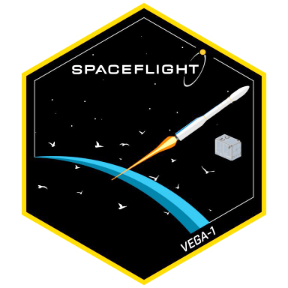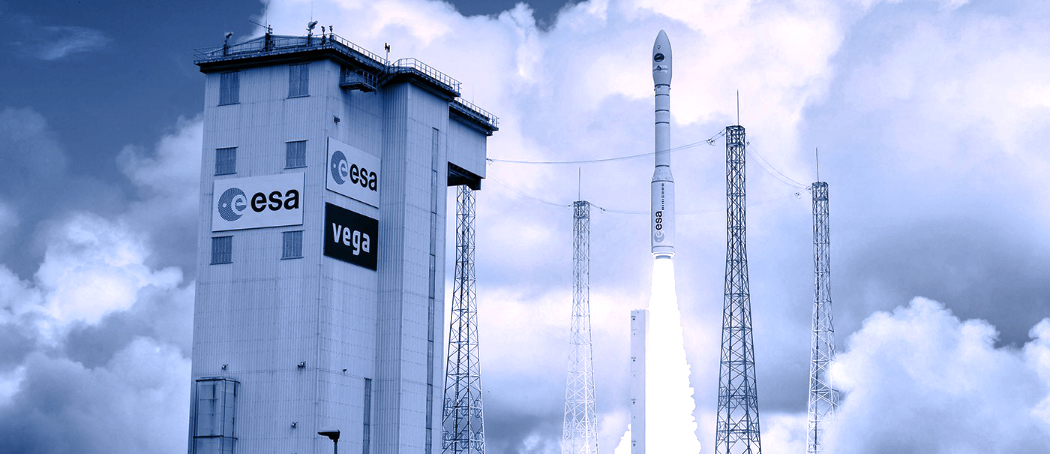
Spaceflight is providing mission management and rideshare integration services for four organizations on Arianespace’s first dedicated rideshare mission on the Vega launch vehicle.
The proof of concept rideshare mission, VV16, will launch 53 smallsats, including 28 payloads from Spaceflight customers Satellogic, Planet, Swarm Technologies as well as an undisclosed organization. Targeted for late March from the Guiana Space Center in Kourou, French Guiana, this launch represents Spaceflight’s first mission aboard the Vega.

A Vega launch file photo. Image is courtesy of Arianespace.
Since its founding, Spaceflight has launched more than 270 satellites via 29 rocket launches, establishing itself as the leading rideshare service provider. Spaceflight plans to execute more than 10 missions in 2020 across many different launch vehicles, including the Falcon 9, Antares, Electron, Vega, SSLV, PSLV, and LauncherOne.
Spaceflight’s parent company, Spaceflight Industries, recently announced it has signed an agreement to sell Spaceflight’s rideshare business to Japan’s Mitsui & Co., Ltd. and Yamasa Co., Ltd. Upon regulatory approval, Spaceflight will continue to operate as an independent U.S.-based company, with a 50/50 joint venture ownership stake by Mitsui & Co. and Yamasa.
This historic rideshare mission to Sun Synchronous Low Earth Orbit of 500 km. aboard the Vega will transport Spaceflight customer spacecraft including:
NewSat-6, an LEO remote sensing satellite designed and manufactured in South America by Satellogic, a vertically integrated geospatial analytics company that is building the first Earth observation platform with the ability to remap the entire planet at both high-frequency and high-resolution. This is Satellogic’s 11th spacecraft in orbit, equipped with multispectral and hyperspectral imaging capabilities and it will be added to the company’s growing satellite constellation.
Planet’s 14 next-generation SuperDove satellites (Flock 4v), which will join its constellation of 150 Earth-imaging spacecraft.
Swarm Technologies’ 12 (.25U) satellites which provide affordable global connectivity. An undisclosed microsat.
Curt Blake, President and CEO, Spaceflight, Inc., said this is an important launch for all involved,. Not only is this our first launch on the Vega, it’s Arianespace’s first, fully dedicated, rideshare mission, which is a direct response to the industry’s demand for more rideshare options. Spaceflight customers are a combination of long-standing, repeat constellation developers as well as smallsat organizations opting to work with us for the first time. The firm’s comprehensive rideshare services range from capacity brokering to full integration and logistics services to help everyone achieve their mission goals on time and budget. Spaceflight is equally excited to partner with Arianespace and play an integral role in their first, of hopefully many, rideshare missions.
Emiliano Kargieman, CEO and Founder of Satellogic, said the company is thankful to Spaceflight for coordinating this launch for the firm. As Satellogic continue to increase the company’s on-orbit capacity, the Vega launch will demonstrate the firm’s capability to adapt these satellites to different rockets and deployment systems. This mission will also allow Satellogic to test new imaging technology capable of capturing sub-meter resolution. Through the refinement of sub-meter imaging, the firm plans to further drive down the cost of high-frequency geospatial analytics.
Arianespace CEO, Stéphane Israël, commented that the company is excited to deliver 28 satellites ranging from 0.33 to 140 kg. for Spaceflight and their customers. This inaugural SSMS mission onboard Vega shows how the Arianespace light vehicle is adapted to tackle the booming smallsat market through rideshare solutions. Today with Vega, tomorrow with Vega C and Ariane 6, Arianespace will offer the best solutions to its customers to deploy their ambitious projects.
